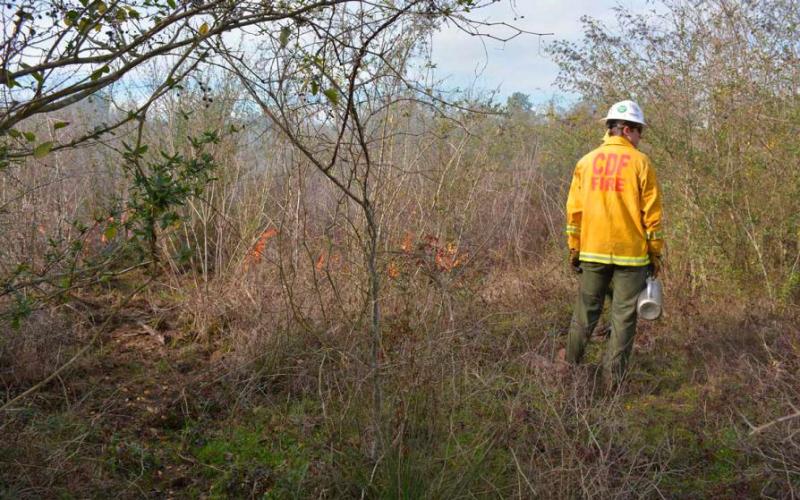A critical component of forest ecology
From carefully controlled prescribed burns to unpredictable and potentially devastating natural disasters, fire is a critical component of the natural forest ecosystem. The concentration in fire management emphasizes how ecosystems can be managed to minimize the negative impacts of uncontrolled wildfires and how to use fire as a tool on the landscape to enhance forest health, watershed resiliency, and wildlife habitat.
Students who choose this STEM degree program will earn a Bachelor of Science in forestry with a concentration in fire management. And, most importantly, they’ll have the skills, knowledge and real-world experience needed for a successful, exciting career in fire management.
At SFA, we believe that some of the most life-changing moments of your education will take place beyond the classroom walls. That’s why we make sure that forestry students have the opportunity to get out of the classroom and participate in transformative learning activities.
When you study fire management at SFA, you’ll have plenty of chances to gain valuable, hands-on experience. Our students participate in faculty research projects and complete exciting, paid internships. They also have access to world-class laboratories, resources and research sites, including:
- Stephen F. Austin Experimental Forest
- Todd Agricultural Research Center
- Hoge Veluwe National Park, The Netherlands
- Angelina, Davy Crockett, Sabine, and Sam Houston National Forests
- East Texas Plant Materials Center
- Alazan Wildlife Refuge
Bachelor of Science in forestry, concentration in fire management
This concentration emphasizes the role of fire in land management, forest ecology, wildlife management and forest resource management.
Students who choose the fire management concentration complete core forestry courses along with electives that align with their research interests and career goals – such as weather and climate, range management, chemistry, timber cruising and landscape ecology.
Check out the forestry curriculum concentration options guide.
*See the Undergraduate Course Bulletin for additional details, guidelines and requirements.
 Axe ’Em, Jacks!
Axe ’Em, Jacks!
